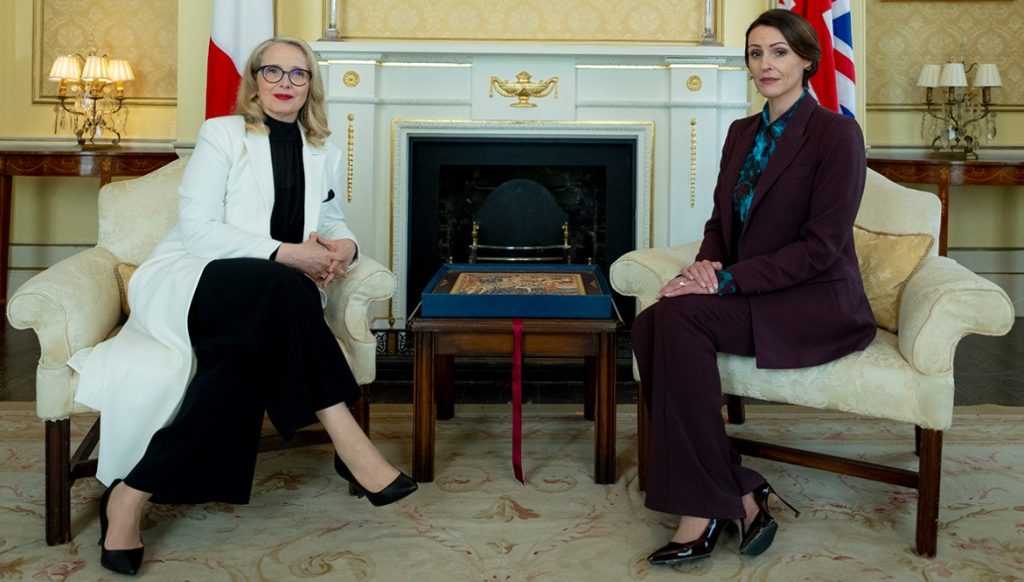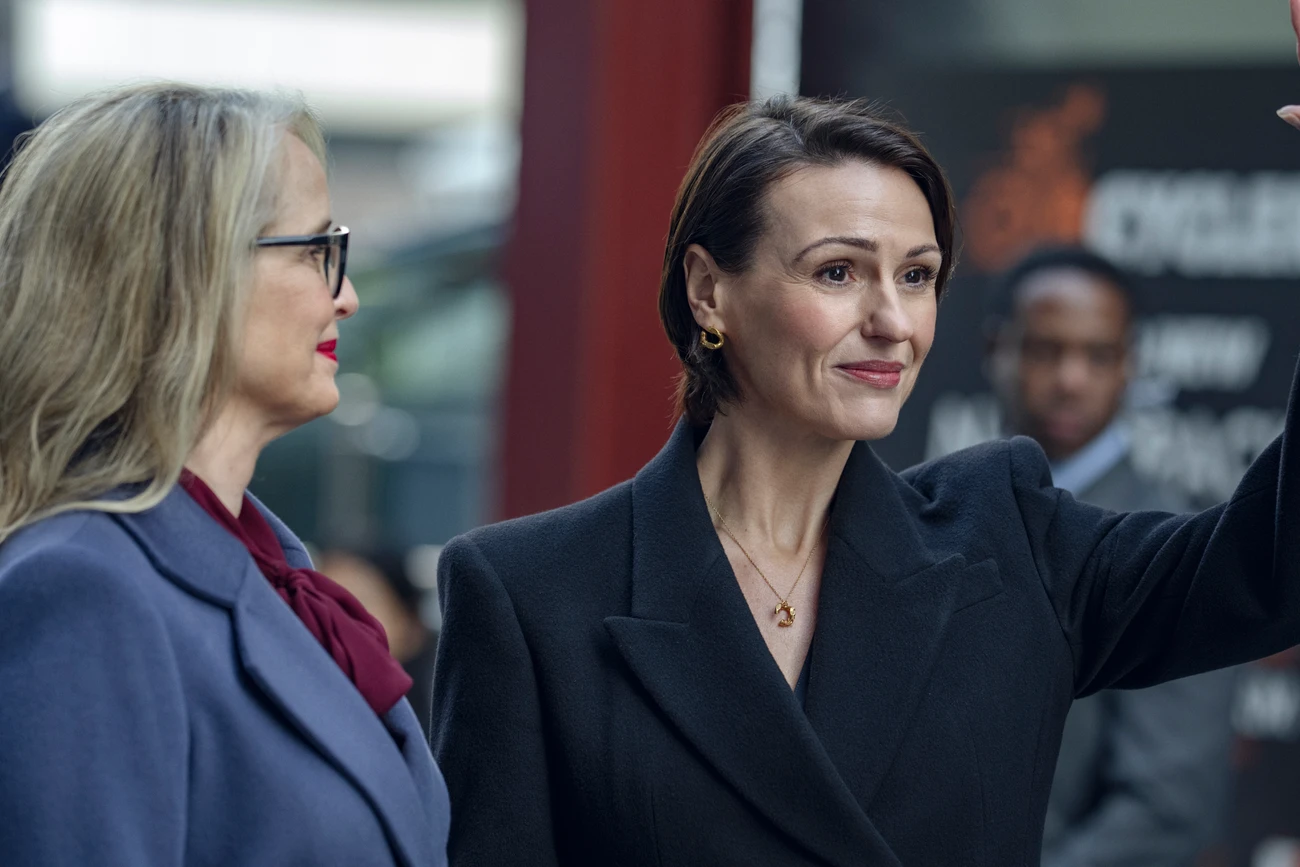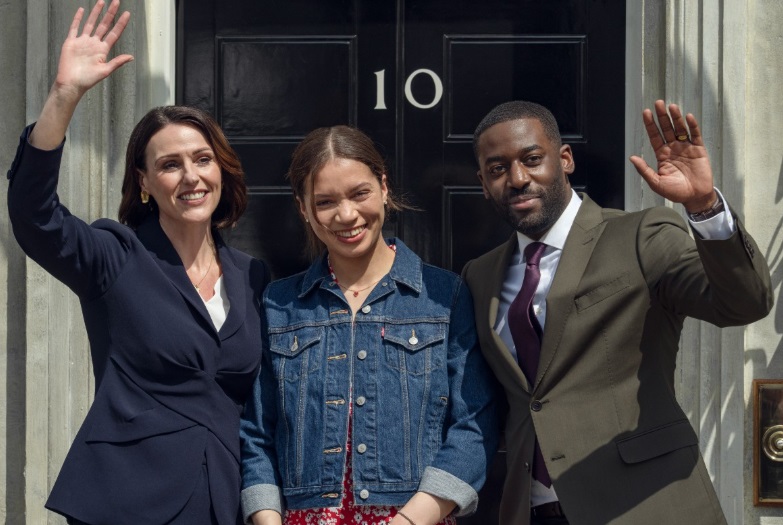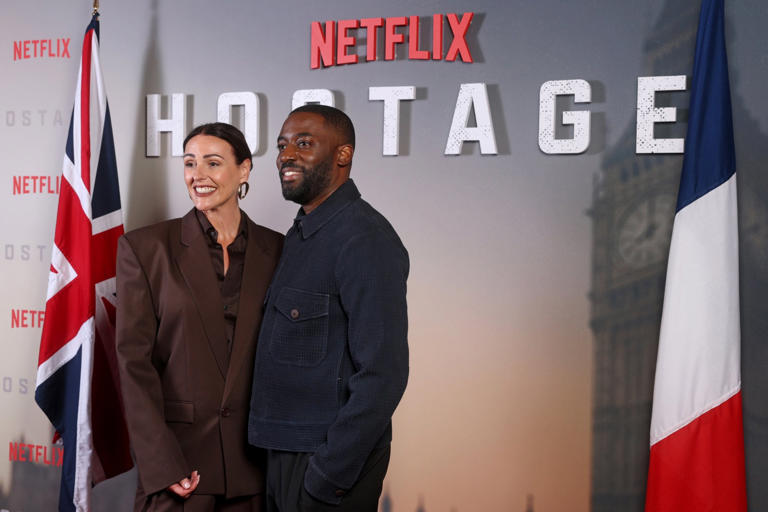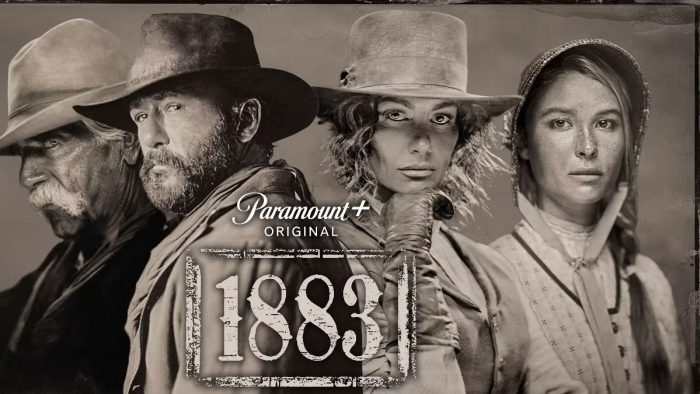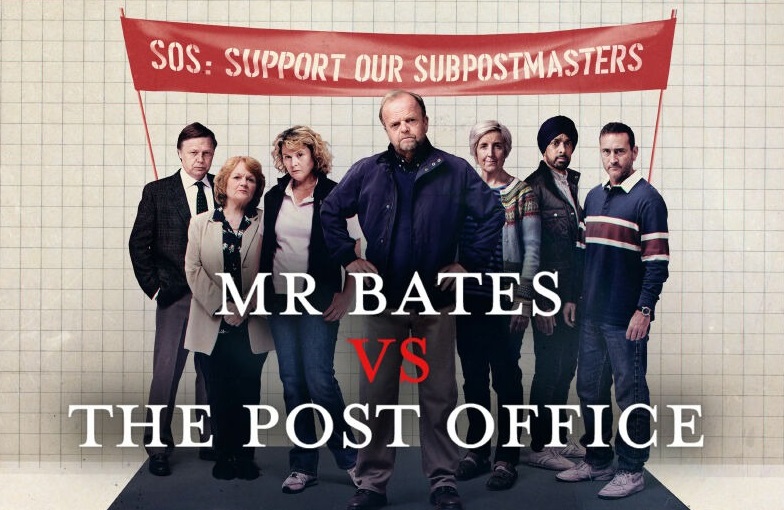“When the British prime minister’s husband is kidnapped and the French president starts receiving threats, both leaders must face an impossible choice”.
Megan Kenyon at The New Statesman described it as “Hostage and the rise of female-led TV thrillers”. Her review is below and available here. Having seen so many vitriolic and downright nasty reviews of this excellent series (mainly by male critics). I felt it pertinent to highlight an objective review. Yes Megan is a woman but she is also measured and has clearly watched all episodes she is writing about. It seems there are some who haven’t forgotten that Suranne Jones once starred in Coronation Street. Why that is brought up in reviews is beyond me and not relevant. Watch and enjoy The Hostage here.
What happens when the spouse of a sitting prime minister gets kidnapped? There aren’t any historical precedents for Hostage to draw upon: the closest the British state has come to this eventuality was when a lone gunman, Ian Ball, attempted to snatch Princess Anne in 1974 (“Bloody likely!” she told her would-be kidnapper after he rambunctiously ordered her to get out of the car). This new blockbuster miniseries, starring a neatly tailored Suranne Jones, imagines how events might unfold. It makes for compelling viewing.
Hostage centres around the elegant, technocratic prime minister, Abigail Dalton (Jones), who is suffering the initial contractions of a political crisis. Despite the government having ploughed millions of pounds into the NHS, at the expense of defence spending, the UK is in the midst of a medicine shortage. Imports of vital drugs have been held up at the border, deepening the public’s distress.
Dalton’s position depends on support from the French government to procure the drugs Britain needs. But there’s a problem: Dalton has recently been caught on a hot mic calling the Marine Le Pen coded French president, Vivienne Toussaint (Julie Delpy), a “handmaiden of the hard right”. Toussaint – unbothered by Dalton’s gaffe – arrives in Downing Street insouciant. She is quick to unveil her demands: France will help alleviate the drugs shortage if its officers are allowed to police UK borders. Even in the fictional realm, the small-boats crisis lingers: another of Toussaint’s demands involves Britain taking in a boatful of refugees with Ebola who were refused entry at Calais.
If this all sounds more fact than fiction – protecting UK borders; an NHS on its knees; Anglo-French acrimony – the parallels with real life end there. Just as this fractious bilateral agreement with France is getting underway, Dalton receives news that her husband has been taken prisoner by unknown militants in French Guiana while on a mission with Médecins sans Frontières. The ransom for her husband’s release is her immediate resignation – a price Dalton is unwilling to pay. Toussaint too, is being blackmailed. The two leaders’ personal and political lives begin to intertwine.
The female-led, emotionally intense political thriller has become a genre in and of itself: think Bodyguard with Keeley Hawes or Black Doves with Keira Knightley. Jones (the detective on a submarine in Vigil, the scorned and scheming wife in Doctor Foster) is to this genre of slick, high-stakes psychological warfare what Hugh Grant is to Nineties romcoms. She is brilliantly cast as the principled yet desperate Dalton, experiencing multiple crises of faith in her competing roles as a politician, wife and mother, her facial expressions precise and delivery exacting. Dalton’s decision to confront her husband’s kidnappers – risking both his life and that of his fellow hostages – rather than capitulating to their demands, is reminiscent of her performance as the spurned Dr Foster.
Though it is in many ways a by-the-book political thriller (explosions at Downing Street, a vote of no confidence, hot-headed exchanges across the cabinet table), in its exploration of the personal lives of its two protagonists Hostage offers a complex psychological portrait of leadership. Toussaint is stuck in a loveless marriage to a French press baron, who uses his soft power to push his wife further to the right. Dalton’s status as the mother of a teenage girl introduces an interesting dynamic to her occupation of Downing Street: she is better equipped to deal with her mutinous cabinet than her rebellious daughter.
Hostage is the kind of show you might once have expected to watch at 9pm on a Sunday on ITV. At times, it feels formulaic and contrived, some of its twists and turns predictable. Nevertheless, it is a highly entertaining thriller (it took me only two sittings to get through all five episodes) with neat ties to today’s political moment. If Jones were to consider reprising her role as the prime minister in a sequel, she’d certainly get my vote.
